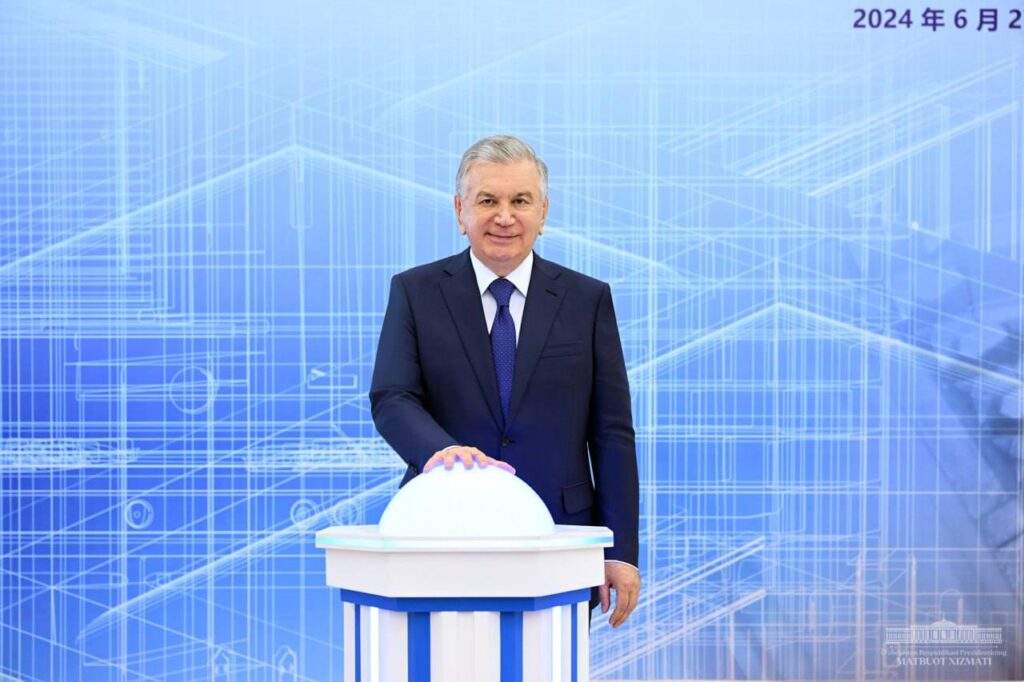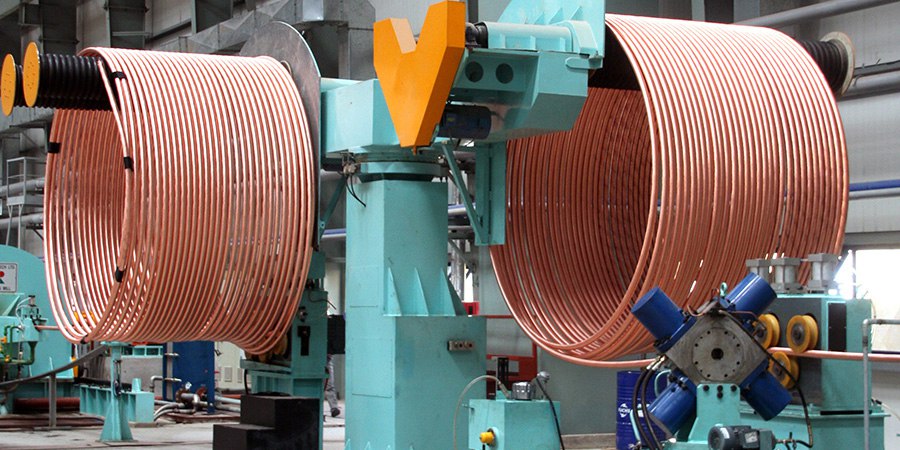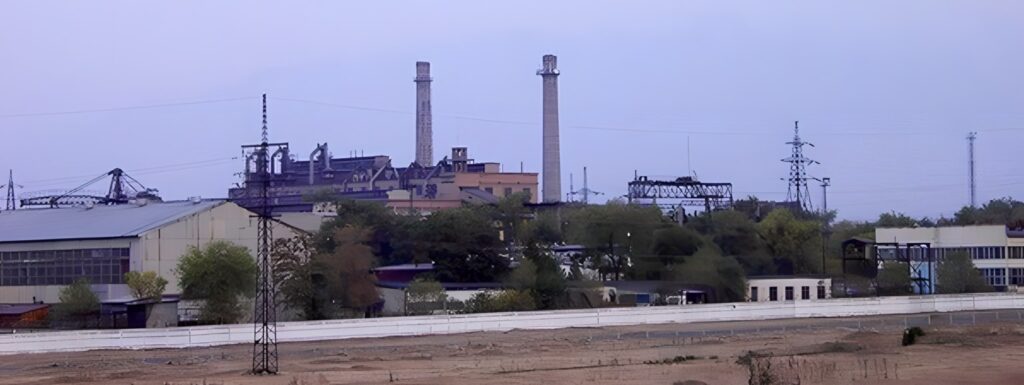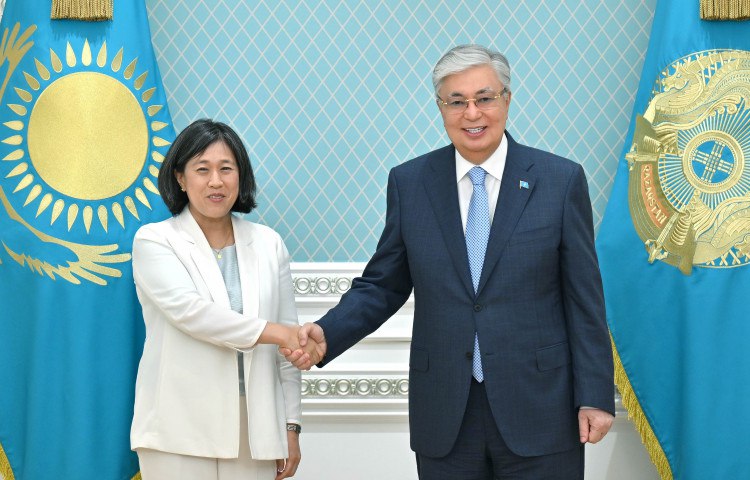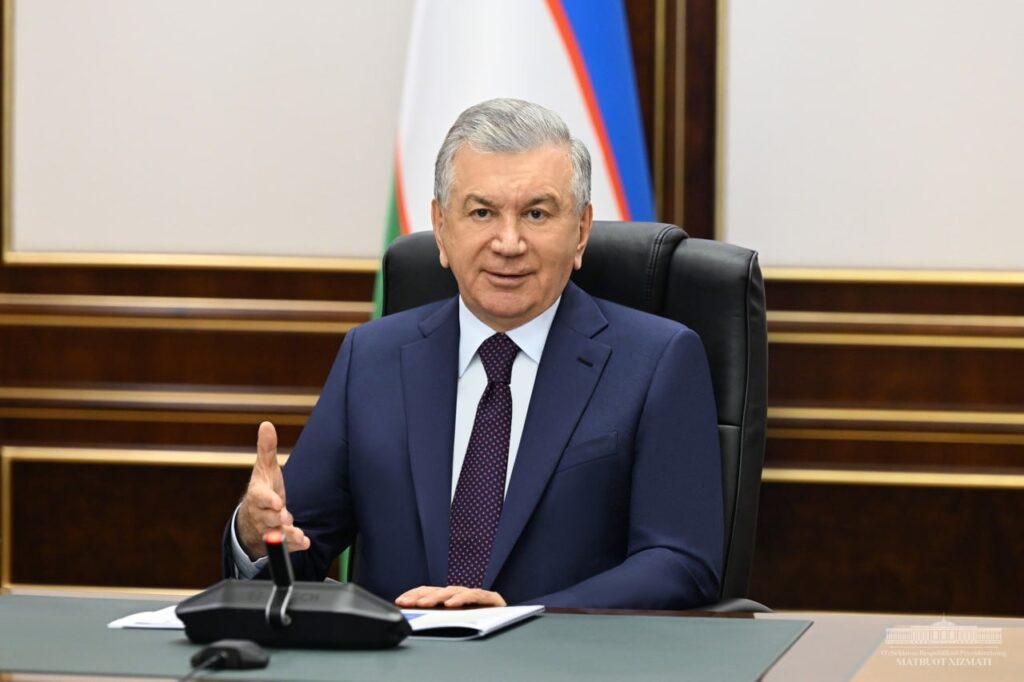Viewing results 1 - 6 of 186
On June 27, President of Uzbekistan Shavkat Mirziyoyev launched the construction of the first project in the Technopark special industrial zone in the Zaamin district of Jizzakh. Chinese investors have allocated a total $1.2 billion towards the realization of 30 projects in the new Technopark. Located on 400 hectares of land, the Technopark will comprise facilities to produce goods with high added value and import-substituting products to meet demands from foreign markets, with particular focus on electrical and mechanical engineering, building materials, furniture, food, and services industries. The initiative will create over 5,000 jobs and produce $70 million worth of goods for export. The Technopark will also provide an International Center for the Exchange of Experience and Engineering, to provide training in specialized skills required by industrial enterprises. Other facilities include an office complex, residential buildings, an eco-park, a large exhibition hall and a shopping center. Apart from the Technopark, Zaamin has recently created a zone to develop its services to tourism which is fast becoming a major driver in the scenic region’s economy.
The Uzbek Cabinet of Ministers has announced its draft decision “On the concept of copper industry cluster development aimed at creating multi-stage added value chains from raw materials to finished products.” As part of this decision, documents for the development concept for the copper industry cluster in Uzbekistan until 2030 and the procedure for accommodating investors within the cluster's territory are set to be approved. The adoption and implementation of this decision and its underlying concept are expected to yield the following results by 2030: annual copper production will reach 400,000 tons, with over 300,000 tons processed within the industry. Additionally, attracting $1.5 billion in investments for localizing the production of electrical engineering and household appliances will increase the total production volume to $8 billion. Uzbekistan is looking to attract both domestic and foreign investment to produce finished and semi-finished copper products within the cluster. Additionally, implementing copper processing projects within the cluster will increase the copper raw material processing rate to 80%. This will boost the export volume of high-value-added finished products and services and establish a system for training and upgrading highly qualified personnel in the mining and metallurgical industries. Creating new production facilities within the cluster will generate more than 10,000 jobs.
The authorities in Kyrgyzstan will spend 1.6 billion som ($18m) to pay the Kara-Balta Mining Combine's tax debts. In addition, the enterprise's specialists will be paid wages they have yet to received in years. Earlier, Kyrgyz President Sadyr Japarov instructed the government to take measures to preserve jobs and assets. He also demanded that all the plant's facilities be restored for fully-fledged work with uranium. "Thus, the enterprise has created favorable conditions for sustainable work, and most importantly all unique specialists have been preserved," the General Director of the Karabalta Mining Company LLC, Kubanychbek Risbaev stated. The Kara-Balta Mining Combine was built in 1955 and was one of the largest uranium processors for the nuclear industry of the USSR. In the 1990s, the plant was privatized and sold to a foreign company. Unsuccessful management by the new investors led to a sharp decline in production, and in 2016, the mill suspended its uranium operations and was declared bankrupt in 2022. In 1998, Combine's laboratory was accredited by the UKAS service and was tested by the London Precious Metals Association a year later. Since then, Kyrgyzstan has officially become a trading participant at the London Metal Exchange. The ongoing modernization work includes the launching of additional facilities, and the introduction of new technologies and modern equipment.
By Vagit Ismailov President of Kazakhstan Kassym-Jomart Tokayev, Deputy Prime Minister Serik Zhumangarin, Minister of Trade and Integration Arman Shakkaliev, Minister of Labor and Social Protection Svetlana Zhakupova, and other officials met with U.S. Trade Representative Catherine Tye. The United States and Kazakhstan reaffirmed their commitment to expanding and diversifying bilateral trade relations. Both sides pledged to deepen cooperation in agriculture and make progress in the near term. This includes increasing U.S. meat and poultry production capacity, optimizing the issuance of digital export certificates, and facilitating increased shipments of U.S. agricultural equipment to Kazakhstan. Tye noted Kazakhstan's interest in repealing the Jackson-Vanik amendment and expressed support for the U.S. Congress' efforts to update the Generalized System of Preferences program. She also recognized the program's importance in diversifying Kazakhstan's trade. The U.S. and Kazakhstan pledged to strengthen joint work on regional connectivity and increase the capacity of the Trans-Caspian Trade Route. The parties discussed increasing bilateral engagement to create diverse, secure, and sustainable supply chains. They stressed the importance of continuous cooperation in trade facilitation, including the harmonization and digitization of customs processes. Tye noted the contribution of U.S. companies' supply of high-quality products and the development of alternative trade routes. She also thanked Kazakhstan for the success of the 15th meeting of the Board of the U.S.-Central Asia Trade and Investment Framework Agreement (TIFA). The working groups noted progress on several issues, including sanitary and phyto-sanitary measures, customs procedures, intellectual property protection, women's economic empowerment, and digital trade. Tye further emphasized the importance of a transparent and consultative regulatory process in regional harmonization. Kazakhstan and the U.S. reaffirmed their commitment to utilize the TIFA mechanism further to deepen trade and investment ties between the U.S. and Central Asia. The U.S. also expressed interest in working closely with Kazakhstan to support internationally recognized labor rights, including promoting workers' rights to freedom of association and collective bargaining. The United States and Kazakhstan pledged to continue working to achieve concrete trade results, maintaining the positive momentum of the bilateral trade and investment relationship.
China Xiaou Group intends to launch a large automobile manufacturing complex in the Ferghana region of Uzbekistan, the Khokimiyat (regional authority) of the Ferghana press service has reported. The agreement on constructing a large automobile complex with China Xiaou Group for $1.5 billion, at the expense of direct Chinese investments, was signed during a visit by a delegation of officials and businessmen from the Ferghana region to China. It is reported that in the first stage of the project, a $50 million investment is planned to set up production lines for 60,000 electric, hybrid, and special cars per year. In the second phase, $350 million will be invested, and $1.1 billion in the third phase. Most of the components will be localized, and the number of cars produced will be increased to 110,000 per year. The project is planned to be fully completed within five years.
At a government meeting on June 19, plans to further develop Uzbekistan’s jewellery industry, support production and increase exports were presented to President Shavkat Mirziyoyev. Noting the country’s huge potential for increasing the production and export of jewellery, the president said that just 6 percent of the gold mined in Uzbekistan is processed, and exports of finished products from gold amount to only $78 million. He thus emphasized the importance of creating jewellery zones equipped to attract entrepreneurs, a review of supplies of raw materials to the industry, and training specialists in the field. With reference to the above, the head of state issued instructions for a program to be developed to enhance the domestic jewellery industry until 2027. The meeting also discussed piloting special jewellery centres with production, exhibition and trading areas in Tashkent and the Namangan region. The government is considering establishing, until October 1, 2026, a zero rate of customs duty and value added tax on equipment, packaging and labelling materials used, but not produced, in Uzbekistan in the jewellery industry. An additional proposal was mooted to establish a zero-customs duty rate for the export of Uzbek jewellery to the USA. In January-March 2024, Uzbekistan exported gold worth $2.66 billion. In the first quarter of the year, revenues from gold exports comprised 41.7% of the country’s total exports. In 2023, gold exports accounted for 33.4%, or $8.1 billion, of Uzbekistan’s total export volume.
